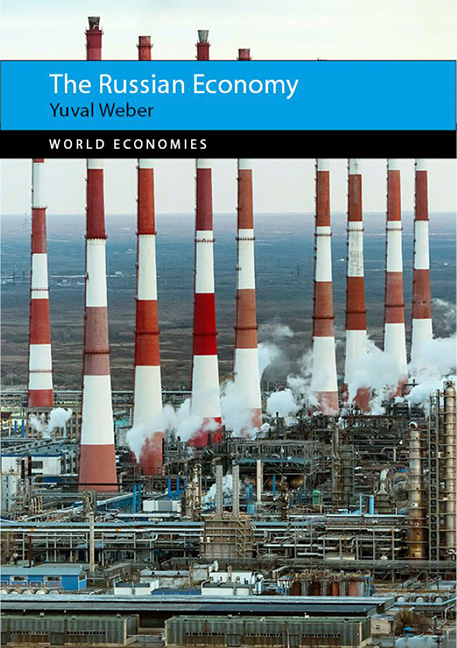Book contents
- Frontmatter
- Contents
- Acknowledgements
- List of Tables and figures
- Map
- Introduction
- 1 Power versus markets
- 2 Russian economic reform in historical perspective
- 3 How Putin’s economy is governed: commanding heights and controlling elites
- 4 Measuring Putin’s economy: the victory of resilience over growth
- 5 Social factors in Putin’s Russia
- 6 The Russia you see is the Russia you get: formalizing informality and informalizing power via sistema
- Conclusion: resilience, war and Russia’s future
- Chronology of Russian history
- Notes
- References
- Index
4 - Measuring Putin’s economy: the victory of resilience over growth
Published online by Cambridge University Press: 20 January 2024
- Frontmatter
- Contents
- Acknowledgements
- List of Tables and figures
- Map
- Introduction
- 1 Power versus markets
- 2 Russian economic reform in historical perspective
- 3 How Putin’s economy is governed: commanding heights and controlling elites
- 4 Measuring Putin’s economy: the victory of resilience over growth
- 5 Social factors in Putin’s Russia
- 6 The Russia you see is the Russia you get: formalizing informality and informalizing power via sistema
- Conclusion: resilience, war and Russia’s future
- Chronology of Russian history
- Notes
- References
- Index
Summary
The Russian economy has always served the foreign policy needs of its leaders by providing the capabilities necessary for securing power at home, expanding the country’s borders, and staking its claim as a great power. The previous chapter showed that the Russian economy nevertheless has, on occasion, posed a national security risk by dragging down growth such that keeping up with competitors while maintaining domestic stability has proven difficult for Russian leaders. In those dire situations, they have permitted the adoption of a pro-market orientation to provide the boost necessary to alleviate specific crises. Vladimir Putin found himself in similar situations to his predecessors, but his recourse to the market has declined over the decades he has spent ruling Russia. Whereas his direct predecessors Mikhail Gorbachev and Boris Yeltsin found themselves in economic crises and sought high-risk strategies to grow their way out of trouble, Putin has instead accepted the tradeoff of lower economic growth in exchange for greater political stability. This is the same strategy earlier pursued by Joseph Stalin and Leonid Brezhnev to increase resilience to external shocks and rival powers. Like Stalin, Putin has prioritized increasing political centralization and resiliency; like Brezhnev, Putin relies on energy revenues to buttress state capacity.
This chapter tells the story of Putin’s economy in two broad ways while later chapters delve deeper into the mechanics of the contemporary economy. First, it places the contemporary Russian economy in comparison, with respect to the baseline figures countries usually measure themselves against, to the other states Putin has considered Russia’s peers: the United States, China, Japan, Brazil, Germany and India. At the broadest levels, these baseline figures include gross domestic product (GDP), GDP per capita, and GDP in purchasing power parity terms. At more specific levels of the economy, international comparative statistics for Russia and those states in workforce participation and productivity tell a worrying story in the long run.
- Type
- Chapter
- Information
- The Russian Economy , pp. 117 - 162Publisher: Agenda PublishingPrint publication year: 2023



